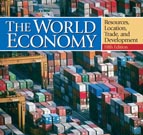New Zealand central bank cuts interest rate to 6.5 per cent
 Wellington - The New Zealand stock market fell by more than 3 per cent Thursday, following the downward trend on markets worldwide, despite an unprecedented 1-percentage-point cut in the central bank's benchmark interest rate.
Wellington - The New Zealand stock market fell by more than 3 per cent Thursday, following the downward trend on markets worldwide, despite an unprecedented 1-percentage-point cut in the central bank's benchmark interest rate.
The NZX50 index ended the day down 92 points to 2,807, a fall of 3.18 per cent from Wednesday's close.
Earlier, the Reserve Bank slashed its benchmark interest rate by 1 percentage point to 6.5 per cent, the third cut in 13 weeks after five years with no reductions.
Reserve Bank Governor Alan Bollard cited "ongoing financial market turmoil and a deteriorating outlook for global growth" as main reasons for the record cut, which was widely predicted.
The Reserve Bank had eased its official cash rate to 8 per cent on July 24 after keeping it at 8.25 per cent - one of the highest rates in the developed world - for 12 months in a bid to contain inflation, and reduced it again to 7.5 per cent on September 11.
The 1-percentage-point cut had been widely anticipated by analysts despite this week's revelation that New Zealand's inflation rate had hit an 18-year high of 5.1 per cent, well over the bank's maximum target of 3 per cent.
Business leaders said that New Zealand interest rates were still among the highest in the western world and the 1.3 million New Zealanders with home mortgages were hoping the trading banks would react by cutting their interest rates the full 1 percentage point.
Bollard said that economic activity in New Zealand, which is officially in recession after two quarters of negative economic growth, would be further constrained by international developments.
"New Zealand can expect to face lower demand for exports, and credit is likely to be less readily available," he said. "In this environment, consumers and businesses are likely to be more cautious and curtail spending."
Bollard said that the bank expected annual inflation to return to the target range about the middle of 2009, despite continuing concerns that labour costs, local body rates, electricity prices and construction costs remain stubbornly high.
He foreshadowed cutting interest rates further but said the timing and extent of further loosening of monetary policy would depend on actual reductions in domestic cost pressures and global financial developments. (dpa)